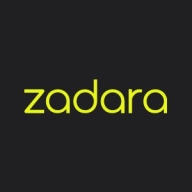


Zadara and Hitachi Content Platform compete in the cloud storage solutions sector. Based on the comparisons, Zadara appears to have the upper hand due to its extensive integration flexibility and cost-effective pricing model.
Features: Zadara offers integration with major cloud solutions like Amazon EC2, providing low latency and hybrid storage capabilities. It also features customizable storage options with SSD and SATA to manage performance and costs effectively. Additionally, Zadara's managed services approach ensures tailored support for unique data challenges. Hitachi Content Platform provides data immutability, advanced metadata management, and seamless integration with existing systems, which is beneficial for compliance and archiving needs. Its support for NFS and S3 protocols enhances mixed environment integration.
Room for Improvement: Zadara needs to expedite market releases of features like auto-tiering and replication and improve proactive patch management. Enhancing integration support for systems such as VMware and introducing iSCSI over the internet would be beneficial. Hitachi Content Platform could simplify its user experience and support system, improve pricing models, and enhance seamless upgrades and protocol support in unified platforms.
Ease of Deployment and Customer Service: Zadara provides 24/7 management with robust support, enabling organizations to focus on core business functions with minimal disruptions due to proactive monitoring. Its hands-on approach in cloud environments offers high flexibility for deployments in hybrid and public cloud settings. Hitachi Content Platform also offers commendable support but lacks the deployment flexibility demonstrated by Zadara.
Pricing and ROI: Zadara offers a transparent pay-as-you-use pricing model, managing costs effectively with no hidden fees, and maximizing ROI through scalability and eliminating upfront capital expenses. Hitachi Content Platform is seen as slightly more costly compared to competitors like StorageGRID, with perceived higher pricing. Both solutions exhibit ROI through cost-saving measures, but Zadara's flexible pricing and scalability provide more immediate benefits.
| Product | Market Share (%) |
|---|---|
| Pure Storage FlashBlade | 5.3% |
| Hitachi Content Platform | 1.6% |
| Zadara | 0.8% |
| Other | 92.3% |


| Company Size | Count |
|---|---|
| Small Business | 11 |
| Midsize Enterprise | 11 |
| Large Enterprise | 21 |
| Company Size | Count |
|---|---|
| Small Business | 4 |
| Midsize Enterprise | 6 |
| Large Enterprise | 4 |
| Company Size | Count |
|---|---|
| Small Business | 12 |
| Large Enterprise | 4 |
FlashBlade is the industry’s most advanced scale-out storage for unstructured data, powered by a modern, massively parallel architecture to consolidate complex data silos (like backup appliances and data lakes) and accelerate tomorrow’s discoveries and insights.
Hitachi Content Platform is an object storage solution that enables IT organizations and cloud service providers to store, share, sync, protect, preserve, analyze and retrieve file data from a single system. It is more efficient, easier to use, and capable of handling much more data than traditional file storage solutions. HCP automates day-to-day IT operations like data protection and readily evolves to changes in scale, scope, applications, storage, server and cloud technologies over the life of data. In IT environements where data grows quickly or must live for years, decades or even indefinitely, these capabilities are invaluable.
Zadara is a powerful enterprise-level storage solution whose design enables it to handle every aspect of a user’s data storage needs. It can be deployed in any location, using any protocol, and storing any data type that an organization requires. With Zadara, organizations can do everything that they were able to do with more traditional systems in a cheaper and more efficient way.
Zadara Benefits
Some of the ways that organizations can benefit by choosing to deploy Zadara include:
Zadara Features
File analytics. Organizations can leverage a powerful analytics package that can provide them with critical insights. These tools can help users sort through their data and make more informed data management decisions.
Reviews from Real Users
Zadara is a highly effective solution that stands out when compared to many of its competitors. Two major advantages it offers are its extensive suite of cloud solution integrations and its object storage capability.
Steve H., the chief technology officer at Pratum, writes, “One of the most valuable features is its integration with other cloud solutions. We have a presence within Amazon EC2 and we leverage computer instances there. Being able to integrate with computing, both locally within Zadara, as well as with other cloud vendors such as Amazon, is very helpful, while also being able to maintain extremely low latency between those connections.”
Mauro R., the CEO of Momit SRL, says, “The object storage feature is wonderful. With traditional storage, you have a cost per gigabyte that is extremely high or related to the number of disks. With Zadara Storage Cloud, you have a cost per gigabyte that you can cut and tailor to your needs independent of the number or size of the disks.”
We monitor all File and Object Storage reviews to prevent fraudulent reviews and keep review quality high. We do not post reviews by company employees or direct competitors. We validate each review for authenticity via cross-reference with LinkedIn, and personal follow-up with the reviewer when necessary.